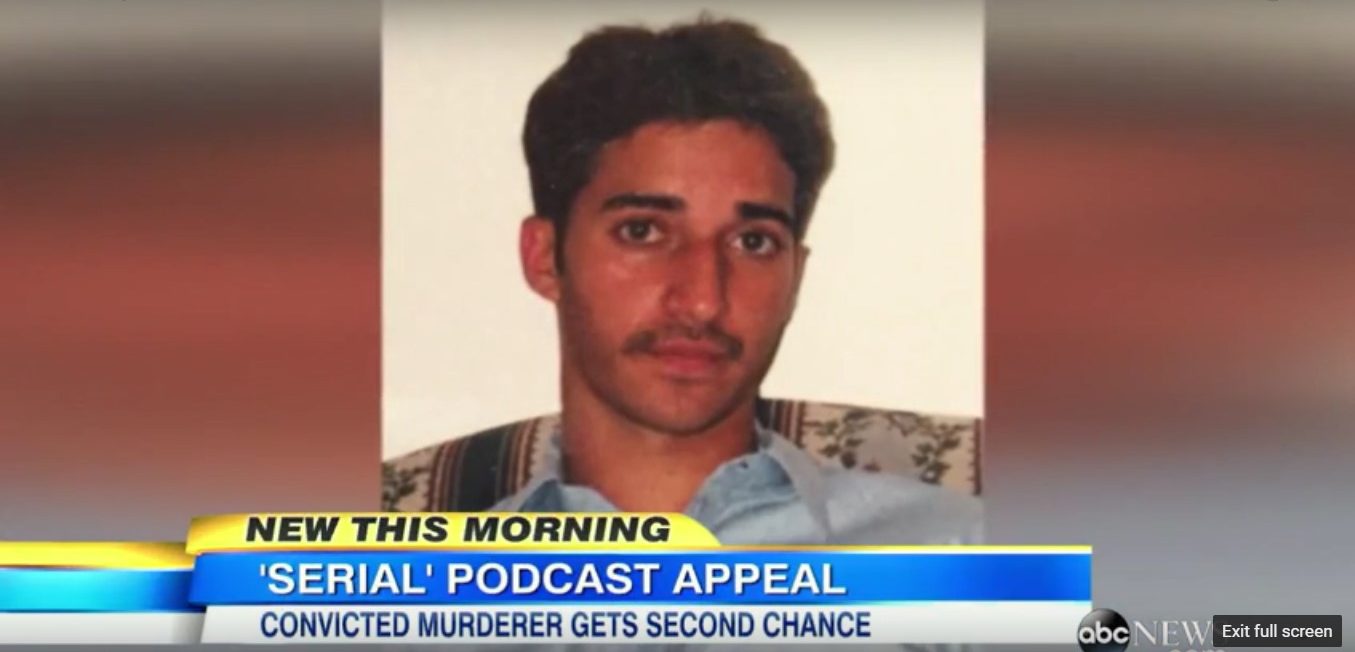
The case of Adnan Syed, a convicted murderer profiled on the popular podcast Serial, would head to the U.S. Supreme Court if the high court agrees to hear the case as requested in a petition for writ of certiorari.
Over the course of the podcast, a team of amateur sleuths investigated the Maryland murder of Baltimore County high schooler Hae Min Lee, who Syed dated. Following Serial‘s release, however, many felt that the case against Syed was riddled with holes. The petition cites this, saying that “Syed’s case has inspired podcasts, a documentary, and countless news articles.”
More specifically, however, the petition claims that the case should go to the Supreme Court over a “straightforward legal issue” regarding the Supreme Court’s 1984 decision on deficient counsel, in Strickland v. Washington. The question as posed in the Syed petition:
Whether a court evaluating prejudice under Strickland v. Washington, 466 U.S. 668 (1984), must take the State’s case as it was presented to the jury, as ten state and federal courts have held, or whether the court may instead hypothesize that the jury may have disbelieved the State’s case, as the Maryland Court of Appeals held below.
Syed attorneys argued that now-deceased Baltimore attorney Cristina Gutierrez’s defense of Syed was “deficient.” He said that while fellow student Jay Wilds claimed that Syed showed him Lee’s body “shortly after school,” another student, Asia McClain, said that she talked to Syed in the library after school with a group of other students. McClain also allegedly sent Syed multiple letters claiming that she could provide an alibi for him. Since Gutierrez failed to include this in her defense of Syed, Brown said that Syed should be get a new trial. Prosecutors claimed in 2016, however, that McClain told classmates she would “make up a lie” to help Syed avoid prison.
The petition said that “not once during trial did the State present evidence—or even bare argument—that Lee had died” any other time than the period immediately following school. The petition also said the state admitted Wilds was a “problematic” witness who “gave the police, multiple, inconsistent statements” about Lee’s disappearance.
Syed’s attorneys said that while “ten state and federal courts analyze Stickland prejudice by leaving ‘undisturbed the prosecution’s case’ and ‘analyzing the evidence that would have been presented had counsel not performed deficiently,'” the Maryland Court of Appeals “holds that a court is not required to ‘leave undisturbed the prosecution’s case.'”
Back in March, Syed lost his appeal in the Maryland Court of Appeals and had his conviction reinstated. Despite the fact that the court found Gutierrez’s performance deficient, they didn’t believe it constituted prejudice against Syed.
Syed is represented by C. Justin Brown, Hogan Lovells US LLP and their lead appellate lawyer Catherine E. Stetson. In order to be granted a chance at appeal and by extension retrial, four of the nine justices will have to agree. If the Supreme Court chooses not to hear Syed’s appeal, he could spend the rest of his life behind bars.
Petition to Supreme Court f… by Law&Crime on Scribd
[Image via ABC screengrab]